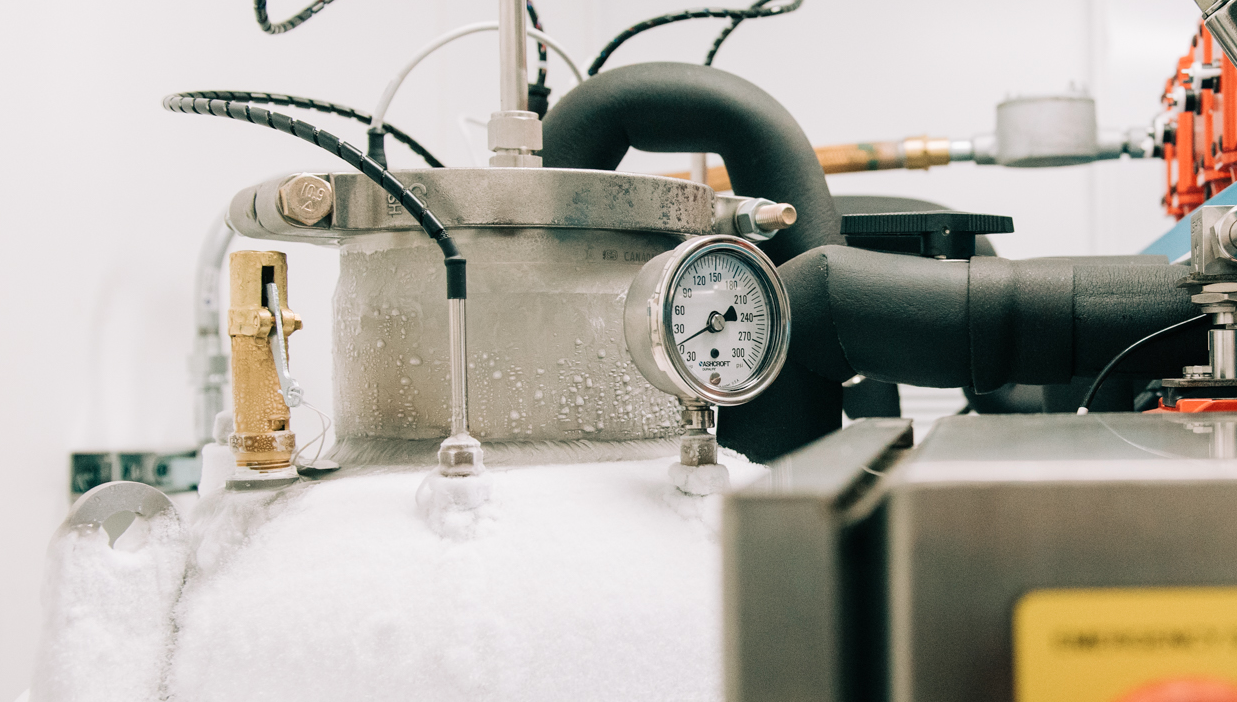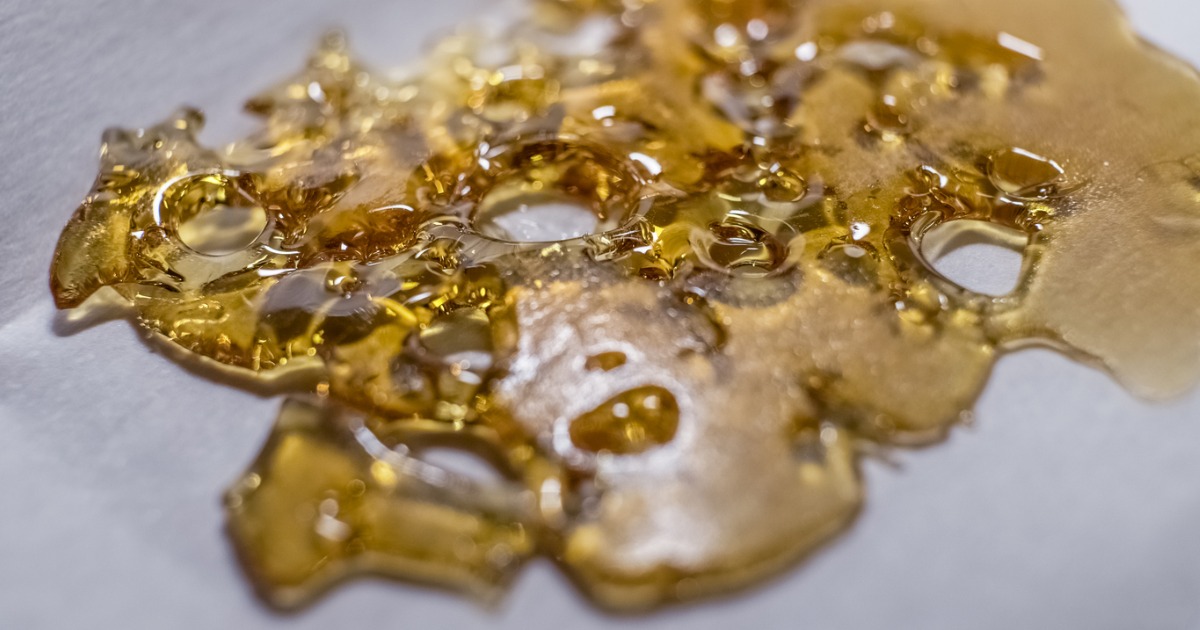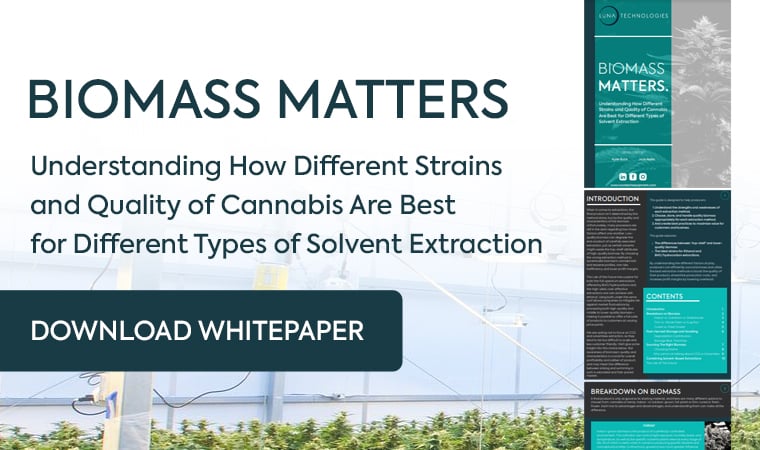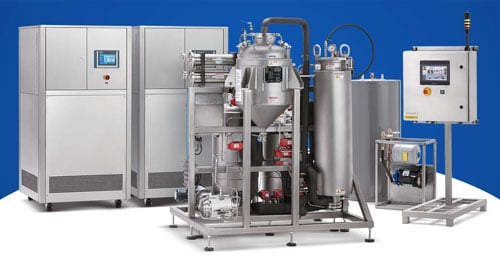Butane hash oil (BHO), or hydrocarbon extraction, is the MVP of the concentrate game. Everyone from medical marijuana patients to recreational consumers to extraction technicians, overwhelmingly, prefer cannabis concentrates made using light hydrocarbons such as butane and propane.
On the commercial and manufacturing side of the process, hydrocarbon extraction affords extract producers an unparalleled level of versatility, affordability, throughput, potency, aroma, flavor, and purity.
Below, we’ll highlight the main benefits of working with hydrocarbons such as butane and propane to execute what is commonly known as BHO extraction. In the hands of trained professionals and standard safety equipment, BHO extraction is a safe and profitable business practice that gets the most out of the cannabis plant in an efficient manner.
In a world where the demand for cannabis concentrates and concentrate-infused products is rapidly growing, choosing the right solvent and equipment can save you hundreds of thousands of dollars and help build trust with consumers.
1. Full-Spectrum Extraction
BHO gives extract producers the ability to reap more out of the cannabis plant than with any other solvent available. How? Butane and propane have unique chemical properties and low boiling points which allow them to strip the cannabis plant of cannabinoids, terpenes, and flavonoids, without the harsh plant material. The use of butane or propane to extract these valuable compounds is also called hydrocarbon extraction.
Butane’s low boiling point of 31.1º F makes it an ideal solvent for retaining more of the temperature-sensitive compounds such as the aromatic terpenes. Cold-boiling the residual solvent from the butane-derived crude oil reduces the risk of boiling off the volatile terpenes.
Some extractors choose to blend butane with propane to create a solvent mixture that can preserve even more terpenes. Propane’s boiling point is -43.6º F. Using lower temperatures when purging the solvent leaves more of the medicinal compounds intact.
Terpene preservation is critical to producing full-spectrum extracts containing the cannabis plant’s entire spectrum of therapeutic compounds. In a practical sense, retaining more terpenes gives your product a true-to-form resin and pungent aroma not seen with other methods.
For medical marijuana users, consuming the full spectrum of compounds can provide amplified therapeutic effects compared to using an isolated compound such as THCA or CBDA diamonds. While minor in concentration, cannabinoids and terpenes play a major role in the entourage effect.
The entourage effect is a phenomenon that involves the interaction of terpenes, flavonoids, and cannabinoids on the body’s endocannabinoid system, The result of the interplay is a more attuned and nuanced experience over a dull one.

2. High-Volume Production Capability
With the right closed-loop equipment, BHO provides a greater return on investment in the long run over other production methods. Butane speeds up the conventional extraction process and post-processing through multiple means.
For one, butane’s relative throughput is significantly higher than CO2’s for dried biomass. Butane is able to get more of the good stuff through fewer runs and requires scant post-processing, which means you have a shelf-ready product in less time.
Automated extraction equipment provides a considerable advantage over manual methods. Automation cuts down on the time spent adjusting parameters for various product lines and training time for technicians and focused on pumping out pure hash oil extracts.
Automated recipes can allow you to literally set it and forget it (although this is not recommended). Technicians don’t have to spend hours poring over technical manuals. Instead, streamlined BHO equipment can provide you with a lean operation that keeps production capacity high.
3. Minimal Post-Processing
Cannabis extraction is a complex and refined process that requires large up-front costs for equipment and the space to put it in. BHO, however, significantly reduces the amount of equipment and time needed to create a retail-ready product.
BHO is able to cut down on costs and time by streamlining the refinement process. With solvents such as ethanol and CO2 extraction, extractors must perform a number of post-processing activities using equipment such as a rotary evaporator, winterization freezer, and fractional distillation apparatus.
Hydrocarbon equipment doesn’t require any of these. Instead, a vacuum oven can perform the necessary solvent purging alone.
After the product has been extracted and before post-processing, the resulting resin is often called crude oil. When using butane or propane (hydrocarbons), however, the oil is anything but crude. Instead, it produces a purer hash oil with cannabinoids, terpenes, and flavonoids, and without chlorophyll and other undesirable compounds.
4. Fully Automatable
Automation is the functionality necessary to take concentrates to the next level. An automated BHO extraction system includes automated controls to reduce operator error and the need for mechanical valves.
Automated equipment cuts down on cost and time throughout the manufacturing process. Automation can speed up the amount of time needed to load and unload the extraction vessel, thereby, increasing throughput.
Automated controls can help technicians dial-in extraction recipes to increase the yield and efficiency of the runs.
Remote touchscreens can limit the number of times technicians need to be watching the machine. Additionally, when technicians are out of the room, that lowers the risk of bodily harm in the rare event of an accident.
While automated solutions may have a slightly higher up-front cost than non-automated equipment, automation can cut down on labor costs in the long run. Technicians aren’t required to spend months training and manually moving levers.

5. Product Diversity
The ability to fine-tune BHO equipment and single one or all of the cannabis plant’s compounds allows you to create a wider range of butane hash oil products for your customers. Cannabis concentrates have become increasingly popular due to the variety of types available.
CO2 and ethanol extraction methods aren’t able to produce the most refined hash oils available on the market. While CO2 and ethanol can make artificially flavored vape oil and THC isolate for a large chunk of the market, they lack the ability to create artisan-crafted cannabis hash oil.
Cannabis concentrate types vary in size, color, texture, and chemical content.
- Live Resin: Flash-frozen buds produce a high-terpene hash oil with a slightly liquid consistency and a blast of flavor.
- Sauce: A full-spectrum hash oil with a gritty and sticky consistency.
- Diamonds: Crystalline extracts of the inactive THCA or CBDA compounds found in sauce or isolates.
- Shatter: A butane hash oil extract with a hard consistency and high potency
- Pull and Snap: Similar to shatter, pull and snap is slightly more malleable and snaps when pulled apart.
- Wax: Wax is a popular cannabis concentrate type that can easily break apart.
- Budder: With a butter-like consistency, budder has very high THC levels.
- Crumble: Dry, crumbly, and potent.
- Sap: A slightly sticky and runny hash oil.
- Oil: A concentrated liquid featuring a wide array of compounds and terpenes.
- THCA Isolate: A crystalline powder with high concentrations of the inactive THCA compound.
A wide range of products can be produced with these concentrates. Edibles can be made with a number of concentrates, albeit, full-spectrum products can affect certain subtle flavors. Distillate is a popular choice for its flavorless and odorless characteristics.
On top of being able to make edibles such as candy and baked goods, hash oil can produce concentrates for vape cartridges, topicals, capsules, tinctures, transdermal patches, and beverages.
6. Safety
In lab settings, the BHO production process goes off without a hitch. When amateur extractors attempt to open-blast their flower or trim with butane, that’s a recipe for disaster. In facilities adhering to local business and building codes, the butane extraction process is incredibly safe.
Extraction equipment using butane and propane operates at relatively low pressures compared to other high-pressure methods such as carbon dioxide, which can reach 1,000 pounds per square inch (psi) compared to only a few hundred psi’s for butane equipment.
Generally, BHO equipment uses under 150 psi, considerably less than other methods. The low-pressure system keeps operators and your equipment safe from high-pressure damage.
Apart from the safety of BHO equipment, butane itself is a hydrocarbon solvent that is generally recognized as safe (GRAS) to use according to the FDA. While other solvents are also GRAS, butane offers plenty of other benefits and its safety is no longer in question.
Luna Technologies: Automated BHO Solutions
Luna Technologies is the leading solution in automated BHO equipment for the cannabis industry. Our IO Extractor is a fully-automated extraction system able to extract 18 pounds of dried cannabis plant material or 25 pounds of fresh-frozen material per run.
That’s about 400 pounds of processed biomass per day with a single operator. The IO Extractor boasts a 50-minute average run time and a 10-minute soak. Run-to-run changeover times take just a couple of minutes for blazing-fast results.
Our state-of-the-art GMP-compliant data logging function allows technicians to increase the safety, quality, and consistency of their operations. Data logging allows you to process biomass with various programmable recipes to create different types of butane hash oil in a moment’s notice.



